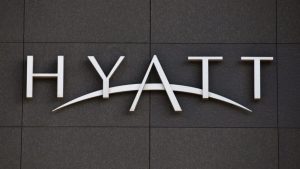Investment banking fees slowed at Goldman Sachs (GS) in the first quarter even as trading volatility helped lift overall revenue and profits, the latest sign of how complicated 2025 is turning out to be for some of the biggest names on Wall Street.
Goldman Sachs CEO David Solomon warned of more challenges to come, saying in a statement Monday that “we are entering the second quarter with a markedly different operating environment than earlier this year” — a nod to the unknowns triggered by President Trump’s aggressive slate of new tariffs — and telling analysts that the prospect of a recession “has increased.”
The firm’s corporate and investing clients, he added on a call with analysts, “are concerned by the significant near-term and longer-term uncertainty that has constrained their ability to make important decisions. This uncertainty around the path forward and fears over the potentially escalating effects of a trade war have created material risk for the US and global economy.”
Overall, first quarter profits at Goldman Sachs rose 15% from the year-ago period to $4.74 billion. Revenues rose 6% to $15 billion.
But dealmaking pulled back. Fees from investment banking dropped 8% from the year-ago period. Advisory revenues earned from helping companies with mergers and acquisitions were down 22%, lower than what analysts expected.
One bright spot was trading, as Goldman benefited from the market volatility surrounding the initial discussion of Trump’s first tariffs in February and March. Equity trading rose a record 27%, and total trading revenue was $8.59 billion — Goldman’s best quarter since it earned $10 billion in the middle of 2009.
Some of Goldman’s rivals on Friday also offered several warnings about the economic uncertainties ahead.
JPMorgan Chase (JPM) CEO Jamie Dimon said the economy faces “considerable turbulence,” even as his bank reported a rise in first quarter profits, and that investment banking “clients have become more cautious amid an increase in market volatility driven by geopolitical and trade-related tensions.”
BlackRock (BLK) CEO Larry Fink told analysts that “the sweeping tariff announcements went further than I could have imagined in my 49 years in finance” and warned the implications could be widespread.
“Uncertainty and anxiety about the future of markets and the economy are dominating client conversations.”
The signs of stress on Wall Street have certainly been mounting in the last week. IPOs and mergers were put on the shelf. Leverage loan deals were shoved to the sidelines. Bond sales were paused.
